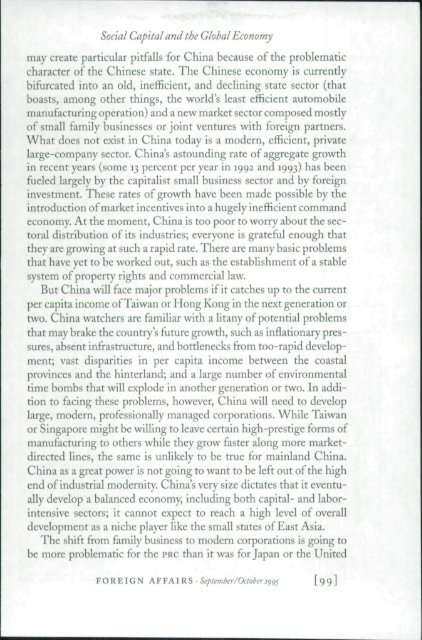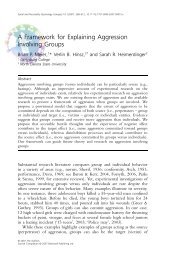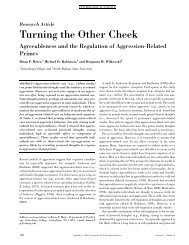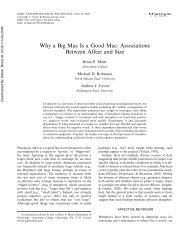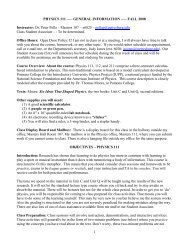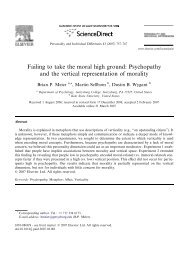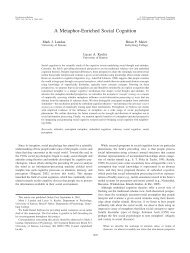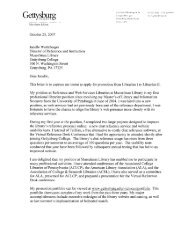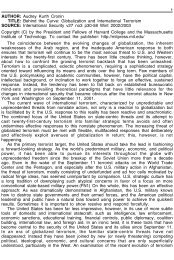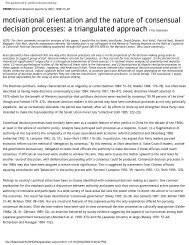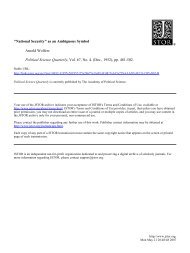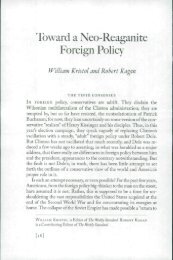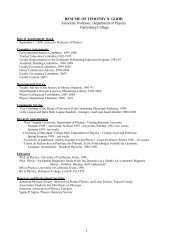Francis Fukuyama. 1995 "Social Capital and the Global Economy."
Francis Fukuyama. 1995 "Social Capital and the Global Economy."
Francis Fukuyama. 1995 "Social Capital and the Global Economy."
Create successful ePaper yourself
Turn your PDF publications into a flip-book with our unique Google optimized e-Paper software.
<strong>Social</strong> <strong>Capital</strong> <strong>and</strong> <strong>the</strong> <strong>Global</strong> <strong>Economy</strong><br />
may create particular pitfalls for Cbina because of tbe problematic<br />
cbaracter of tbe Cbinese state. The Chinese economy is currently<br />
bifurcated into an old, inefficient, <strong>and</strong> decUning state sector (that<br />
boasts, among otber things, tbe world's least efficient automobile<br />
manufacturing operation) <strong>and</strong> a new market sector composed mostly<br />
of small family businesses or joint ventures with foreign partners.<br />
What does not exist in China today is a modern, efficient, private<br />
large-company sector. Chinas astounding rate of aggregate growth<br />
in recent years (some 13 percent per year in 1992 <strong>and</strong> 1993) bas been<br />
fueled largely by <strong>the</strong> capitalist small business sector <strong>and</strong> by foreign<br />
investment. Tbese rates of growtb bave been made possible by tbe<br />
introduction of market incentives into a bugely inefficient comm<strong>and</strong><br />
economy. At <strong>the</strong> moment, China is too poor to worry about tbe sectoral<br />
distribution of its industries; everyone is grateful enough that<br />
<strong>the</strong>y are growing at such a rapid rate. There are many basic problems<br />
tbat have yet to be worked out, such as <strong>the</strong> establisbment of a stable<br />
system of property rigbts <strong>and</strong> commercial law.<br />
But Cbina will face major problems if it catcbes up to tbe current<br />
per capita income of Taiwan or Hong Kong in tbe next generation or<br />
two. Cbina watcbers are familiar witb a litany of potential problems<br />
tbat may brake tbe country's future growtb, sueb as inflationary pressures,<br />
absent infrastructure, <strong>and</strong> bottlenecks from too-rapid development;<br />
vast disparities in per capita income between <strong>the</strong> coastal<br />
provinces <strong>and</strong> <strong>the</strong> hinterl<strong>and</strong>; <strong>and</strong> a large number of environmental<br />
time bombs that will explode in ano<strong>the</strong>r generation or two. In addition<br />
to facing tbese problems, bowever, Cbina will need to develop<br />
large, modern, professionally managed corporations. Wbile Taiwan<br />
or Singapore might be willing to leave certain bigb-prestige forms of<br />
manufacturing to otbers wbile tbey grow faster along more marketdirected<br />
lines, <strong>the</strong> same is unlikely to be true for mainl<strong>and</strong> China.<br />
China as a great power is not going to want to be left out of tbe bigb<br />
end of industrial modernity. China's very size dictates tbat it eventually<br />
develop a balanced economy, including both capital- <strong>and</strong> laborintensive<br />
sectors; it cannot expect to reacb a bigh level of overall<br />
development as a niche player like <strong>the</strong> small states of East Asia.<br />
Tbe shift from family business to modern corporations is going to<br />
be more problematic for tbe PRC than it was for Japan or <strong>the</strong> United<br />
FOREIGN AY V AIR?, September/October lggs [99]


